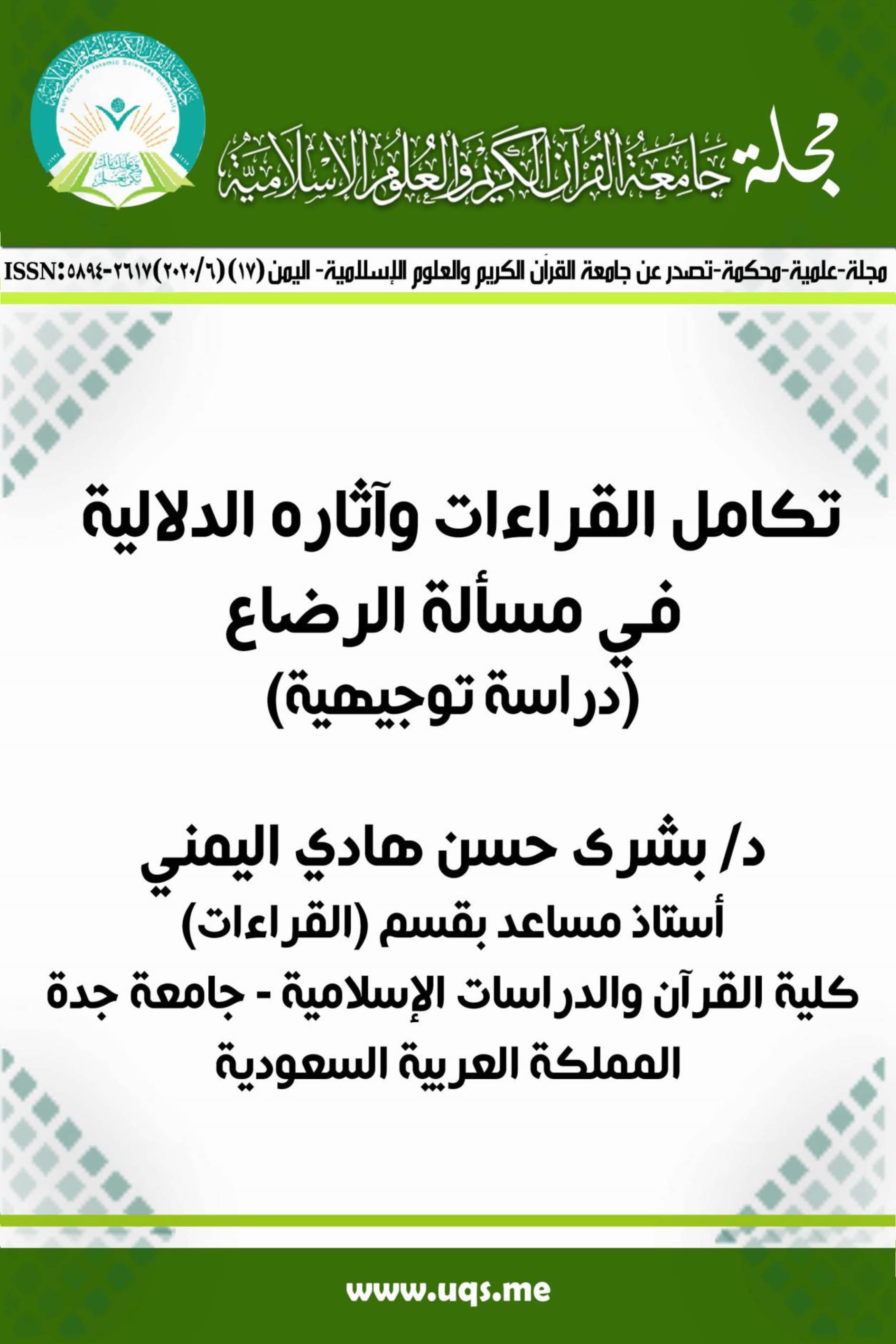Integration of readings and its semantic effects on the issue of breastfeeding
(guidance study)
DOI:
https://doi.org/10.61821/kkgaa773Keywords:
Integration, Quranic, Recitations, Suckling, Breastfeeding, HarmAbstract
This research entitled, 'The Quranic Readings' Integral Relationship
and its Semantic Effects on Breastfeeding (in the verses of
breastfeeding), aims at clarifying the idea that the Quranic readings have
an integral relationship.
It, also, shows the impact of this integral relationship on stating the
breastfeeding's duration, judgment, and responsibilities; it explains the
effects of the harm related to breastfeeding's disputes. The research
concluded that the integral relation of the Quranic recitations means:
every recitation indicates a part of the meaning, which means that the
meaning is complete with all the recitations together.
Thus, all the recitations help in expressing the total complete
meaning. This integration has many types and ways, which overlaps in
features in some verses and has exclusive features in some other verses.
And it enhances the meanings and ensures some meanings. It helps in
elaborating judgments, and in understanding some phases in general, in
particular, freely, or restrictedly.
So, it can be invoked by the modes of recitations of the same verse
to have several cohesive judgments. Further, the Quranic recitations have
integral relation in stating the judgment and responsibilities of
breastfeeding, which has different conditions with several factors that
should be taken into consideration and dealt with properly. The different
recitations, also, show that suckling is a mandatory matter for the father
or the inheritors excluding the mother for she is the one who does it, by
instinct, out of necessity. The total period of suckling is two years unless
the child and his mother are separated for acceptable reasons; parents
then have the right to decide a less-than-two-year period.
The Quranic recitations indicate the judgment of harm related to
suckling, its phases, and the necessity of leaving it, raising the woman's
humanitarian motive for feeling lonely and preventing her from hurting
herself or her son with the intension of hurting the husband.
Downloads

Downloads
Published
Issue
Section
License
©This article is an open access article distributed under the terms and conditions of the Creative Commons Attribution (CC BY) license



